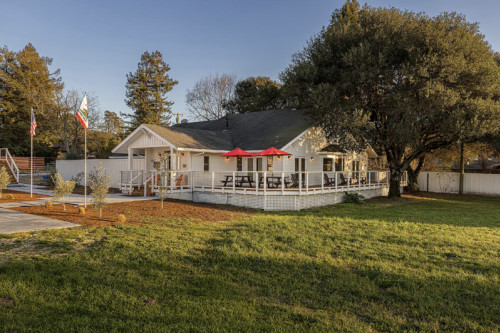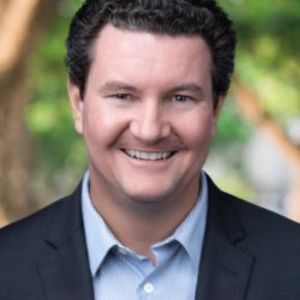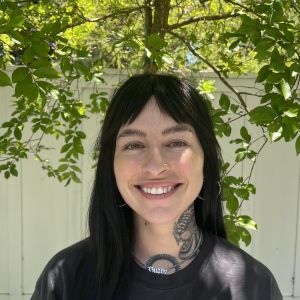






Muir Wood Teen Treatment - Girls Residential
Treatment Focus
This center treats substance use disorders and mental health conditions. You'll receive individualized care catered to your unique situation and diagnosis, learn practical skills for recovery, and make new connections in a restorative environment.
Primary Level of Care
Provides 24/7 medical supervision and intensive treatment in a clinical setting for individuals in crisis or with acute needs, focusing on stabilization and immediate safety
Claimed
Recovery.com has connected directly with this treatment provider to validate the information in their profile.
Treatment Focus
This center treats substance use disorders and mental health conditions. You'll receive individualized care catered to your unique situation and diagnosis, learn practical skills for recovery, and make new connections in a restorative environment.
Primary Level of Care
Provides 24/7 medical supervision and intensive treatment in a clinical setting for individuals in crisis or with acute needs, focusing on stabilization and immediate safety
Provider's Policy
Muir Wood Teen can't accept Medicare, Medicaid, or MediCal policies. Muir Wood is in-network with Anthem, Aetna, Cigna, Halcyon, Kaiser, Magellan, MHN, and Optum. Call now to speak with an admissions manager. We’ll provide all of the information you need to make an informed decision.
Muir Wood Teen Treatment - Girls Residential
Muir Wood Teen Treatment - Girls Residential
About Muir Wood Teen Treatment - Girls Residential
Founded in 2013, Muir Wood Adolescent and Family Services is a Joint Commission-accredited gender-separate residential treatment program for teen girls, ages 12-17, struggling with mental health, behavioral, and substance use issues. Muir Wood's Lohrman Campus offers a highly individualized, gender specific, and family-centered program that serves teenage girls. The staff at Muir Wood includes full-time double-board-certified psychiatrists, therapists, nurses, educators, and recovery counselors.
Comprehensive and Personalized Care
Muir Wood Teen Treatment begins treatment with comprehensive psychological assessments and testing. The key components of the residential program include a weekly family intensive, comprehensive psychological testing, twice weekly individual therapy, assessments by a board-certified psychiatrist, twice weekly family support groups, and much more. Their treatment team meets weekly to discuss patient progress and make any adjustments to treatment. Muir Wood Teen Treatment offers experiential and adventure therapies like hiking, art and music therapy, yoga and meditation.
Academic Support
Muir Wood Teen Treatment provides academic support for teens in 7-12th grade. Their academic staff partners with teens’ home schools to continue their education during treatment. Teens spend 3+ hours in school Monday-Friday during the school year. They can also join a virtual track and continue their studies online. Muir Wood Teen Treatment has on-site academic staff to facilitate and guide schoolwork. Muir Wood’s academic program is accredited by the Western Association of Schools and Colleges (WASC). In Riverside, girls from both the Edgewild and Da Vinci campus attend school sessions together.
Evidence-Based Treatment and Family Care
Muir Wood Teen Girl’s Residential - Lohrman Campus offers a wide variety of recovery-friendly outings and activities, like hiking in nearby parks. The house and grounds of the campuses are modern, spacious, and comfortable. Clients enjoy activities like yoga, meditation, ping-pong, volleyball, basketball, board games, and sports. Executive chefs prepare 3 nutritious meals per day. Muir Wood includes the whole family in the healing process. Parents and caregivers are actively involved in every step, with weekly family therapy, education, and a 16-week aftercare program.
Center Overview
Treatment Focus
This center treats substance use disorders and mental health conditions. You'll receive individualized care catered to your unique situation and diagnosis, learn practical skills for recovery, and make new connections in a restorative environment.
Joint Commission Accredited
The Joint Commission accreditation is a voluntary, objective process that evaluates and accredits healthcare organizations (like treatment centers) based on performance standards designed to improve quality and safety for patients. To be accredited means the treatment center has been found to meet the Commission's standards for quality and safety in patient care.
Insurance Accepted
Cash Pay Rates
Estimated Cash Pay Rate
Center pricing can vary based on program and length of stay. Contact the center for more information. Recovery.com strives for price transparency so you can make an informed decision.
Meet Your Care Team

Stacey Irving
CEO

Dr. Ian Wolds
Chief Clinical Officer
Psy.D.

Nicolette Gottuso
Clinical Director
LMFT, SUDCC IV-CS
Levels of Care






Your Care Options
Specializations
Co-Occurring Disorders
A person with multiple mental health diagnoses, such as addiction and depression, has co-occurring disorders also called dual diagnosis.
Adolescents
Teens receive the treatment they need for mental health disorders and addiction, with the added support of educational and vocational services.
Who We Treat
Adolescents
Teens receive the treatment they need for mental health disorders and addiction, with the added support of educational and vocational services.
Children
Treatment for children incorporates the psychiatric care they need and education, often led by on-site teachers to keep children on track with school.
LGBTQ+
Addiction and mental illnesses in the LGBTQ+ community must be treated with an affirming, safe, and relevant approach, which many centers provide.
Approaches
Twelve Step
Incorporating spirituality, community, and responsibility, 12-Step philosophies prioritize the guidance of a Higher Power and a continuation of 12-Step practices.
Therapies
1-on-1 Counseling
Patient and therapist meet 1-on-1 to work through difficult emotions and behavioral challenges in a personal, private setting.
Family Therapy
Family therapy addresses group dynamics within a family system, with a focus on improving communication and interrupting unhealthy relationship patterns.
Twelve Step Facilitation
12-Step groups offer a framework for addiction recovery. Members commit to a higher power, recognize their issues, and support each other in the healing process.
Trauma-Specific Therapy
This form of talk therapy addresses any childhood trauma at the root of a patient's current diagnosis.
Nutrition Counseling
Nutritious food helps patients heal from within, setting them up for mental and bodily wellness as they learn about healthy eating.
Life Skills
Teaching life skills like cooking, cleaning, clear communication, and even basic math provides a strong foundation for continued recovery.
Conditions We Treat
Post Traumatic Stress Disorder
PTSD is a long-term mental health issue caused by a disturbing event or events. Symptoms include anxiety, dissociation, flashbacks, and intrusive thoughts.
Anxiety
Anxiety is a common mental health condition that can include excessive worry, panic attacks, physical tension, and increased blood pressure.
Grief and Loss
Grief is a natural reaction to loss, but severe grief can interfere with your ability to function. You can get treatment for this condition.
Suicidality
With suicidality, a person fantasizes about suicide, or makes a plan to carry it out. This is a serious mental health symptom.
Obsessive Compulsive Disorder (OCD)
OCD is characterized by intrusive and distressing thoughts that drive repetitive behaviors. This pattern disrupts daily life and relationships.
Personality Disorders
Personality disorders destabilize the way a person thinks, feels, and behaves. If untreated, they can undermine relationships and lead to severe distress.
Stress
Stress is a natural reaction to challenges, and it can even help you adapt. However, chronic stress can cause physical and mental health issues.
Bipolar
This mental health condition is characterized by extreme mood swings between depression, mania, and remission.
Trauma
Some traumatic events are so disturbing that they cause long-term mental health problems. Those ongoing issues can also be referred to as "trauma."
Substances We Treat
Cocaine
Cocaine is a stimulant with euphoric effects. Agitation, muscle ticks, psychosis, and heart issues are common symptoms of cocaine abuse.
Prescription Drugs
It's possible to abuse any drug, even prescribed ones. If you crave a medication, or regularly take it more than directed, you may have an addiction.
Benzodiazepines
Benzodiazepines are prescribed to treat anxiety and sleep issues. They are highly habit forming, and their abuse can cause mood changes and poor judgement.
Ecstasy
Ecstasy is a stimulant that causes intense euphoria and heightened awareness. Abuse of this drug can trigger depression, insomnia, and memory problems.
Co-Occurring Disorders
A person with multiple mental health diagnoses, such as addiction and depression, has co-occurring disorders also called dual diagnosis.
Drug Addiction
Drug addiction is the excessive and repetitive use of substances, despite harmful consequences to a person's life, health, and relationships.
Heroin
Heroin is a highly addictive and illegal opioid. It can cause insomnia, collapsed veins, heart issues, and additional mental health issues.
Synthetic Drugs
Synthetic drugs are made in a lab, unlike plant-based drugs like mushrooms. Most synthetic drugs are either stimulants or synthetic cannabinoids.






